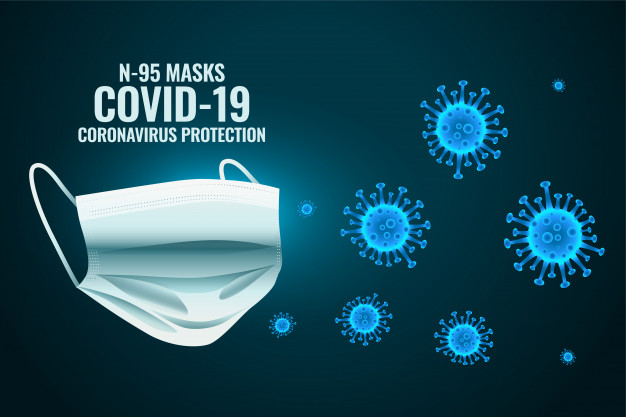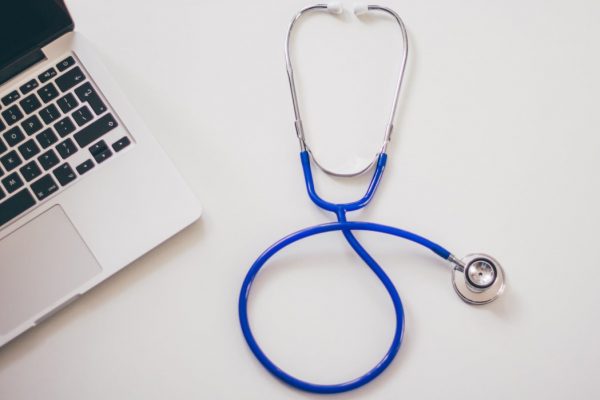The number of those infected by the Coronavirus pandemic continues to surge every hour, causing a global uproar. To mitigate the risk of COVID-19 virus contamination, Governments and regulatory agencies adapt to the nonpharmacological steps mandating the use of masks to contain the Coronavirus infectivity.
Can a Face Mask Protect from Coronavirus?
Masks are highly recommended for use in controlling the spread of the COVID-19 virus. They are effectively used as barriers against disease transmission by fluid droplets suspended in the air, however, masks are not designed to fully protect the wearer from an entry of infectious particles which may happen if there is any leakage in the mask.
The masks (including the disposable N95 filtering mask) have a limited lifespan. Once worn, they can become deformed, damage, or develop intolerable levels of breathing resistance from the moisture build-up within. If worn in an environment with a high probability of exposure to infectious agents like in the healthcare facilities or closed spaces like a shopping complex, they can become contaminated.
Hence, to mitigate the COVID-19 infection risk here is a quick run on How to use, re-use, and dispose of face masks during the Coronavirus Pandemic.
Types of Coronavirus protection Face masks
Masks are available in cloth, surgical or respirator formats for Coronavirus pandemic protection. Its usage depends on the environment to which the user may be exposed and the probability of exposure.
The performance of a mask or a respirator depends on –
- Filter Efficiency- How well it can collect airborne particles.
- Fit- How well it can prevent the risk of leakage around the face.
Based on mask performance, the different masks are categorized into-
- Cloth mask – As the name suggests, these masks are made of cloth and are not ideally recommended to be used by the caregivers of infected patients. Cloth masks do not provide adequate protection but are better for regular use. You can make a cloth mask at your home or even use a bandana, or a scarf that may cover your face while stepping out for grocery shopping.
- Surgical mask – These are loose-fitting, disposable masks made of polypropylene. Surgical masks may be effective in blocking splashes, sprays, particle droplets which may contain the Coronavirus particles. It must be noted that Surgical masks are not effective in blocking air-bone small particles which may be transmitted if a COVID-19 infected person sneezes or coughs.
- N95 Respirator – These masks must be used by medical professionals, caregivers, emergency professionals. An N95 respirator is made from polypropylene material and filters out a minimum of 95% of all type’s particles, including bacteria and viruses which are smaller up to 0.3 microns in size.
Coronavirus Protection-How to Use a Face Mask
- Depending on the use, filter efficiency and fit, choose a mask from cloth, surgical or N95 respirator.
- Wash your hands till the wrist thoroughly with soap and water or sanitize using a minimum of 60% alcohol-based sanitizer before you put the mask.
- Put the mask in a way that it effectively covers your mouth and nose without any gaps in-between.
- If your mask gets damp, replace it immediately with a new one. Do not re-use single-use masks.
- To remove the mask, do not touch the front of the mask instead remove it from behind. Dispose of a used mask immediately in a tissue paper or polythene bag. Wash your hands till the wrist thoroughly with soap and water or sanitize using a minimum of 60% alcohol-based sanitizer.
Which masks can be re-used?
- There are 3 different kinds of Re-Use-
| Cloth- Mask | Surgical- Mask | N95 Mask | |
| Reuse between different Individuals | Yes, with adequate de-contamination measures adopted, like washing Cloth masks with hot water immediately after a single-use. | No | No |
| Reuse by the same Person | Yes, with adequate de-contamination measures adopted, like washing Cloth masks with hot water immediately after a single-use. | No | Yes, if N-95 masks have not been soiled or damaged. |
| Repeated use by the same person over time | No, frequent use over time makes the cloth fabric worn and tear out increasing infectivity contamination. | No | No |
Coronavirus Protection- How to Re-Use a face mask?
Washing disposable medical masks may make them ineffective by destroying their barrier properties. In this case, they can no- longer prevent Coronavirus infectivity. Frequent use of a re-usable face mask may cause high humidity and temperature inside the respirator which can be conducive to microbiological growth. Here is how you can re-use a face mask-
- Wash your cloth masks every day with detergents with bleach-like compounds in hot water (above 60-degree C). Sundry immediately after wash.
- You must not re-use Surgical masks throughout the day. They contain materials that may deteriorate with usage over standard levels of disinfection like heat, radiation, and chemical exposure.
- N95 respirators may be considered for reuse until they are torn or contaminated with respiratory or nasal secretions, or other bodily fluids. Respirators must be disinfected and cleaned before every reuse.
Coronavirus Protection- How to Dispose used face masks?
Respiratory masks must be treated as a bio-medical waste and disposed of with caution. Masks are highly contaminated as viruses and germs can thrive on a used mask between a few hours to a few days under different temperatures causing surface contamination.
- Do not throw your used mask without proper disposal safety precautions in workplaces, lifts, public transport, homes, or open dust bins. It is a potential health hazard to people who may encounter the disposed of a mask and may re-use it.
- The disposed masks have respiratory secretions that may transmit through the air. Follow strict handwashing (above 20 Seconds) or use a sanitizer (more than 60% alcohol content) after taking off the mask.
Precautions for Safe disposal of Face Masks
Surgical Masks
- Remove from the strings.
- Do not touch the front portion while taking off the mask.
- Fold the surgical mask half inwards. Do not expose the nose droplets or droplets from the mouth.
- Fold the mask into another half, till it resembles a roll. Tie with its ear loops.
- Wrap the mask in a polythene bag or a tissue paper.
- Immediately discard it at a waste-bin.
N95 Respirator
- Hold the edge straps of the N95 mask. Don’t touch the inner part of the respirator.
- Gently remove the mask. Do not disseminate contaminants on the mask.
- Place the mask in a zip-lock or a plastic bag and secure the bag tightly.
- Dispose the N-95 respirator in a plastic bag into a garbage can or into a biomedical waste disposal unit.
When to see an Infectious Disease Specialist during Coronavirus
If you develop symptoms of cold, fever, or cough and lose interest in food you must unlock the power of telemedicine technology and consult an infectious disease specialist by booking an appointment on the Gigadocs app an intelligent practice management software.
On the Gigadocs app, you can book doctors around you, securely store your medical records, track your vitals like pulse rate, steps walked, and share them with your digital doctor on a real-time basis. Gigadocs app ensures you never miss your follow-up appointments and sends you regular notifications of your next doctor visit.
To download Gigadocs app-
IOS App – apple.co/2W2iG4V
Andriod App – bit.ly/33AQoRC
To know more e-mail, at info@gigadocs.com
Seek your digital doctor from trained health care professionals around you on the Gigadocs app.




